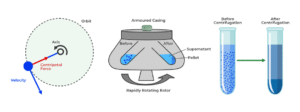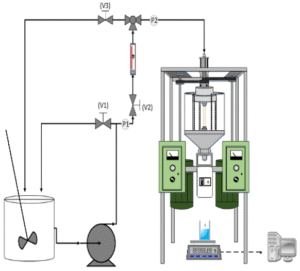Back to: MICROBIOLOGY 400 LEVEL
Welcome to class!
Hello brilliant scholar! I’m thrilled to have you here again. You’ve been making fantastic progress, and today, we’re going to discuss a topic that plays a big role in industries across Nigeria and beyond—Types of Industrial Enzymes. Just like you need tools to do specific tasks at home or in the kitchen, enzymes are nature’s tools. They help speed up chemical reactions in factories—from making bread to softening leather. Let’s break it all down in a way that makes perfect sense to you.
Types Of Industrial Enzymes
What Are Enzymes?
Enzymes are special proteins produced by microorganisms that act like biological machines. They speed up reactions without being used up themselves. Think of them like the okada (motorcycle) that helps you get to your destination faster—it doesn’t change the road, but it makes the journey quicker!

In industries, enzymes help reduce cost, save time, and make processes more eco-friendly. Instead of using harsh chemicals or high heat, industries can use enzymes to get the job done in a gentler and more efficient way.
Types of Industrial Enzymes and Their Uses
1. Amylases
These enzymes break down starch into simple sugars.
Sources: Bacteria like Bacillus subtilis and fungi like Aspergillus oryzae.
Uses: In bread making, amylases help yeast work faster. In breweries, they help convert starch in grains into sugars that can ferment into alcohol.
Nigerian example: Used in food industries in Lagos to improve baking quality and sweetness in drinks.
2. Proteases
These break down proteins into smaller peptides or amino acids.
Sources: Produced by bacteria like Bacillus licheniformis and fungi like Aspergillus niger.
Uses: In detergent manufacturing, they help remove protein stains like blood or food. Also used in leather processing to soften hides and in the food industry for tenderising meat.
3. Lipases
These break down fats and oils.
Sources: Microorganisms such as Candida rugosa.
Uses: In the dairy industry to develop flavour in cheese, in detergents for removing greasy stains, and in the production of biodiesel from vegetable oils.
4. Cellulases
These enzymes break down cellulose, a main component of plant fibres.
Sources: Trichoderma reesei is a common producer.
Uses: Used in textile industries to give jeans a stonewashed look, and in paper industries to soften pulp.
Local example: Textile factories in Aba use cellulases for fabric finishing.
5. Pectinases
These break down pectin, a compound found in fruits.
Uses: In juice production to clarify fruit juices like orange, pineapple, and mango.
Common in: Fruit juice processing plants in places like Benue and Ogun State.

6. Laccases and Peroxidases
These are oxidative enzymes used in dye decolourisation and waste treatment.
Application: Useful in environmental management and textile industries.
Summary
- Industrial enzymes are biological tools used to speed up processes in different industries.
- Amylases break down starch and are used in food and brewing industries.
- Proteases break down proteins and are used in detergents and leather processing.
- Lipases break down fats and oils, useful in dairy and biodiesel production.
- Cellulases help break down plant fibres and are used in textile and paper industries.
- Pectinases and other special enzymes are useful in juice production and waste treatment.
Evaluation
- What is the main function of amylase in the food industry?
- Name two enzymes used in the textile industry and their roles.
- Which enzyme is useful in detergent production for breaking down protein stains?
Every lesson brings you closer to becoming the kind of expert Africa needs. Keep feeding your mind with knowledge—you’re not just learning, you’re building the future. Afrilearn is proud of you, and we can’t wait to meet you in the next exciting class!
